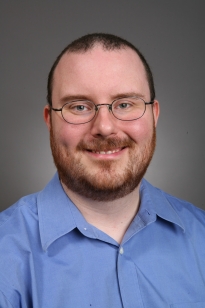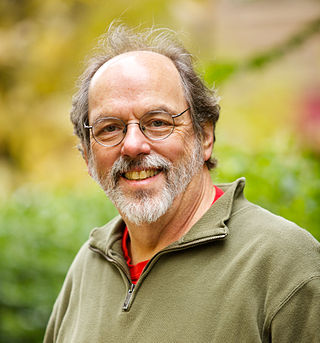
The Apache HTTP Server is a free and open-source cross-platform web server software, released under the terms of Apache License 2.0. Apache is developed and maintained by an open community of developers under the auspices of the Apache Software Foundation.

Perl is a family of two high-level, general-purpose, interpreted, dynamic programming languages. "Perl" refers to Perl 5, but from 2000 to 2019 it also referred to its redesigned "sister language", Perl 6, before the latter's name was officially changed to Raku in October 2019.

Synchronized Multimedia Integration Language ) is a World Wide Web Consortium recommended Extensible Markup Language (XML) markup language to describe multimedia presentations. It defines markup for timing, layout, animations, visual transitions, and media embedding, among other things. SMIL allows presenting media items such as text, images, video, audio, links to other SMIL presentations, and files from multiple web servers. SMIL markup is written in XML, and has similarities to HTML.

Randal L. Schwartz, also known as merlyn, is an American author, system administrator and programming consultant. He has written several books on the Perl programming language, and plays a promotional role within the Perl community. He is a co-host of FLOSS Weekly.

ActiveX is a deprecated software framework created by Microsoft that adapts its earlier Component Object Model (COM) and Object Linking and Embedding (OLE) technologies for content downloaded from a network, particularly from the World Wide Web. Microsoft introduced ActiveX in 1996. In principle, ActiveX is not dependent on Microsoft Windows operating systems, but in practice, most ActiveX controls only run on Windows. Most also require the client to be running on an x86-based computer because ActiveX controls contain compiled code.
O'Reilly Media is an American learning company established by Tim O'Reilly that publishes books, produces tech conferences, and provides an online learning platform. Its distinctive brand features a woodcut of an animal on many of its book covers.
Xiph.Org Foundation is a nonprofit organization that produces free multimedia formats and software tools. It focuses on the Ogg family of formats, the most successful of which has been Vorbis, an open and freely licensed audio format and codec designed to compete with the patented WMA, MP3 and AAC. As of 2013, development work was focused on Daala, an open and patent-free video format and codec designed to compete with VP9 and the patented High Efficiency Video Coding.
Windows Services for UNIX (SFU) is a discontinued software package produced by Microsoft which provided a Unix environment on Windows NT and some of its immediate successor operating-systems.

Bradley M. Kuhn is a free software activist from the United States.

OpenID is an open standard and decentralized authentication protocol promoted by the non-profit OpenID Foundation. It allows users to be authenticated by co-operating sites using a third-party identity provider (IDP) service, eliminating the need for webmasters to provide their own ad hoc login systems, and allowing users to log in to multiple unrelated websites without having to have a separate identity and password for each. Users create accounts by selecting an OpenID identity provider, and then use those accounts to sign on to any website that accepts OpenID authentication. Several large organizations either issue or accept OpenIDs on their websites.
In computing, a solution stack or software stack is a set of software subsystems or components needed to create a complete platform such that no additional software is needed to support applications. Applications are said to "run on" or "run on top of" the resulting platform.

LAMP is an acronym denoting one of the most common software stacks for many of the web's most popular applications. However, LAMP now refers to a generic software stack model and its components are largely interchangeable.

Komodo Edit is a free and open source text editor for dynamic programming languages. It was introduced in January 2007 to complement ActiveState's commercial Komodo IDE. As of version 4.3, Komodo Edit is built atop the Open Komodo project. Komodo IDE is no longer supported and maintained by developers for Python.
Telligent, A Verint Company is an enterprise collaboration and community software business founded in 2004 by Rob Howard. The company changed its name to Zimbra, Inc in September 2013 after acquiring Zimbra from VMWare. In August 2015, Verint Systems, Inc. acquired Telligent and currently operates Telligent as an independent business unit. As of August 2015, the remaining assets of Zimbra were acquired by Synacor.

OAuth is an open standard for access delegation, commonly used as a way for internet users to grant websites or applications access to their information on other websites but without giving them the passwords. This mechanism is used by companies such as Amazon, Google, Facebook, Microsoft, and Twitter to permit the users to share information about their accounts with third-party applications or websites.

Greg Stein, living in Austin, Texas, United States, is a programmer, speaker, sometime standards architect, and open-source software advocate, appearing frequently at conferences and in interviews on the topic of open-source software development and use.

The history of wikis began in 1994, when Ward Cunningham gave the name "WikiWikiWeb" to the knowledge base, which ran on his company's website at c2.com, and the wiki software that powered it. The wiki went public in March 1995, the date used in anniversary celebrations of the wiki's origins. c2.com is thus the first true wiki, or a website with pages and links that can be easily edited via the browser, with a reliable version history for each page. He chose "WikiWikiWeb" as the name based on his memories of the "Wiki Wiki Shuttle" at Honolulu International Airport, and because "wiki" is the Hawaiian word for "quick".

Aaron Roe Fulkerson is an American information technology businessman and founder of MindTouch, Inc. Fulkerson helped pioneer the open core business model, collaborative networks, and the application of Web Oriented Architecture to enterprise software.
Zmanda Inc. is an open-source software and Cloud backup software company. It is headquartered in the United States. In partnership with open source companies such as Sun and MySQL, the company contributed to open source projects. Zmanda was acquired by Betsol in May, 2018.

Linspire is a commercial operating system based on Debian and Ubuntu and currently owned by PC/OpenSystems LLC. It had been owned by Linspire. Inc. from 2001 to 2008, and then by Xandros from 2008 to 2017.













